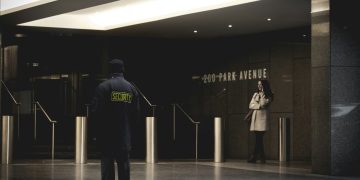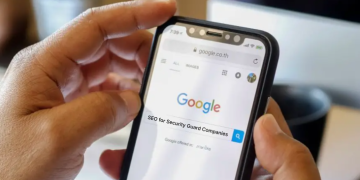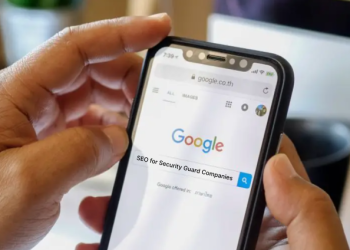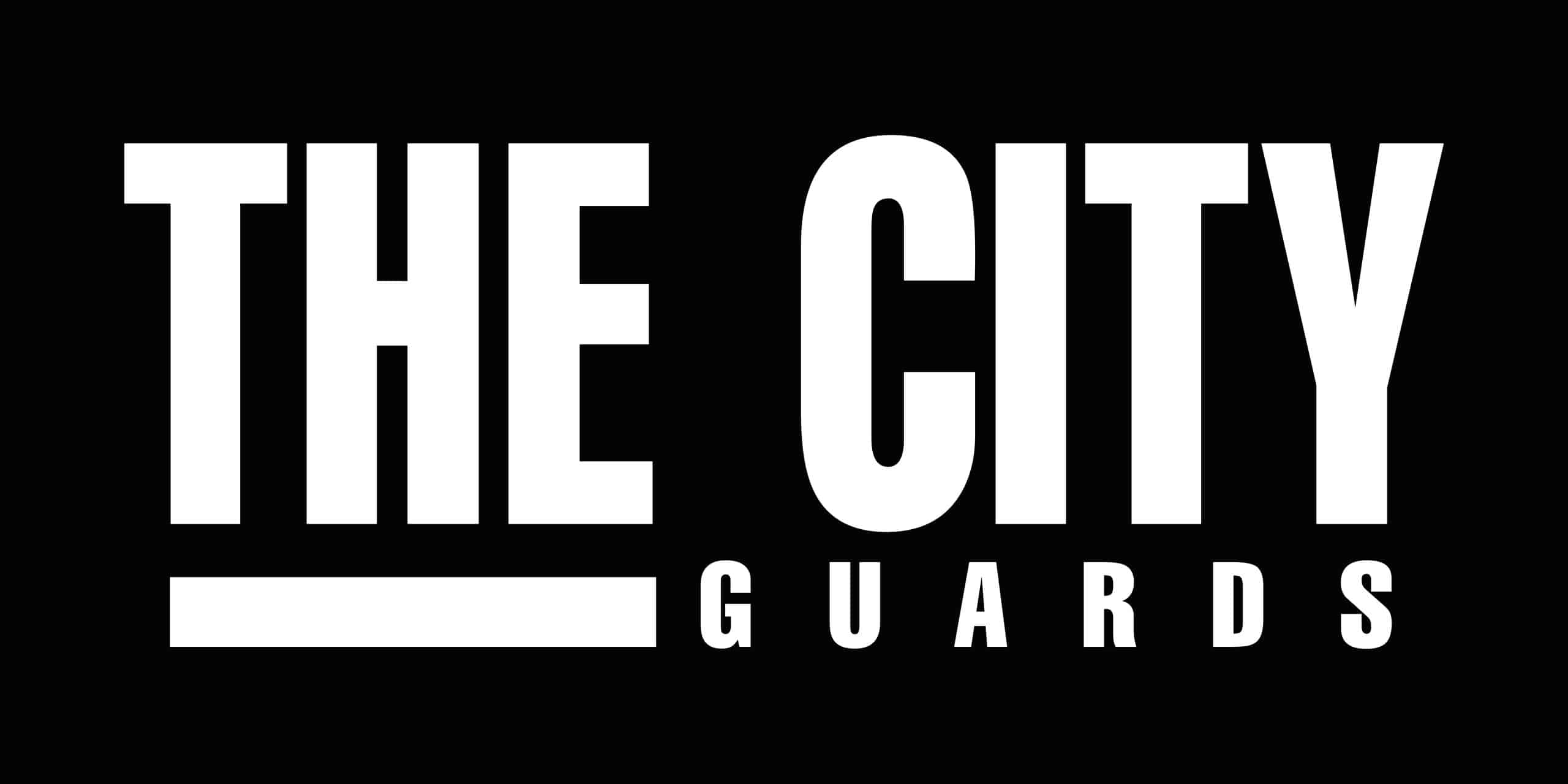Your security guard company is by nature a high-risk business. But you can reduce your risk even in your risky business environment. Provide the best safety net of insurance coverage for your company and personnel with strategic insurance choices- to protect your company’s future.
Most people simply see a security service company as providing a uniformed guard for a shopping mall, or a patrol car for a neighborhood. They don’t realize the complex details of running a security company like a business owner or manager does. Security guard companies like yours offer clients a large variety of ways to protect their people and property.
2025 is being forecast as the time that the security industry turns the corner from reactive systems to truly proactive real-time crime prevention, using remote video monitoring and guarding. The implications of the industry being increasingly in the forefront of protection are vast. As a security company owner or manager, you are responsible for more than simply hiring and training workers, providing top-notch equipment, setting up offices and payroll, and obtaining clients.
You must protect yourself, your company, your investments, and your employees with the correct insurance “safety net.” Any unarmed or armed security guard insurance costs have to be tailored to perfectly match your business. And they must be at the best prices available to you.
So your company’s financial stability depends on having the best insurance coverage to protect your business and personnel from the risks and liabilities associated with your operations. In addition to securing comprehensive insurance, ensure the success and growth of your security guard company- it is essential to focus on effective security guard marketing strategies.
How Do You Determine What Is The Best Insurance Coverage To Reduce Your Risk In A Risky Business?
There are many factors that determine your insurance choices.
What is your business model?
Analyze your business for factors such as:
The type of clients you serve (e.g. hotels, concerts, banks, construction sites, malls, schools, gated communities)
The risk level of your services (e.g. high risk armed guards, bail bond recovery, bodyguards OR lower risk surveillance monitoring, foot patrol or traffic control)
The target areas in which you serve (e.g. crime hotspots, dangerous areas, remote sites)
What are the security services you provide-
Video surveillance security?
Unarmed or armed guards?
Bodyguards or bail bond recovery?
Event security?
Vehicle, bike or foot patrols?
These factors, and others, will dictate the different insurance protections you need. Furnishing clients with armed guards requires different insurance coverages than simply providing video surveillance operations. You also want to look for a provider that gives your company high insurance limits (coverage amounts) for what is paid out for any claim. In this context, selecting the right security guard management system become crucial as well.
Your operations also have a level of risk that affect your insurance premiums as well. Providing security patrols in a low-risk standard commercial building will have lower insurance premiums than supplying security services at a bank, jewelry store, or nightclub.Multiple core policies for a security business can range from low-risk premiums of $7,300 a year up to high-risk premiums of $20,000 annually.
Security guard insurance for your company is a combination of first-party and third-party policies– all intended to protect your company finances. First-party insurance provides you compensation as the insured individual or business. Third-party insurance provides compensation to another party for you as the insured person or business liable for damages.
What are the types of insurance policies you need?
Multiple policies make up security guard insurance, and any good insurance coverage will involve a combination of these various basic types tailored to your specific business. They are:
General Liability Insurance
This is basic for any business, not just security guard companies. Often known as slip and fall insurance, this covers accidents or injuries to third parties on company premises. General Liability Insurance protects businesses from unanticipated expenses– since most average slip and fall cases settle for $10,000-$50,000- an unexpected outlay to any budget. Low-risk premiums can be $2,750-$3,500 annually. General Liability insurance can also cover property damage repairs (if for example your guard accidentally causes damage to client equipment). GL also can cover legal defense costs, court costs, or settlements fees.
Professional Liability (Errors and Omissions) Insurance
This may be included in some General Liability Insurance. This insurance is needed to protect a business from professional error, negligence claims, or breach of contract failures against them. Premiums can be $2,500-$3,000 annually.
Assault and Battery Insurance
This is critical insurance if your company provides security for clients that operate bars or nightclubs, or clients that need to prevent shoplifting. The likelihood of physical altercations is higher for such clients. Premiums can be $900-$1200 annually.
Firearm Insurance
This is a must for security companies that provide armed guards for their clients.
Armed security guard insurance costs are higher. Your business also needs insurance to cover replacement costs if your company’s firearm is stolen. You additionally want liability coverage so your business cannot be sued for negligence if that gun is then used in a crime.
Workers’ Compensation
This coverage provides wage replacement and medical benefits to an employee who is injured while in your employment. This is required in most states. Since security workers on average suffer more than twice the injuries as average workers, Workers’ Compensation is vital to protect your business and your workers. Medical expenses, lost wages, and disability benefits are all part of WC coverage. Premiums can be $2,000-$3,000 annually.
Commercial Property Insurance
This may be a stand-alone policy, or part of a General Liability Insurance, bundled as a business owner’s policy (BOP). Commercial Property Insurance covers company property used in operations- offices, patrol vehicles, gear, radios, security cameras, etc. This insurance typically also offsets lost income during periods when your company is closed due to property damage. Low- risk premiums can be $550-$800 annually.
Commercial Auto Insurance
If your security company has patrol vehicles, this insurance is essential. It will provide protection against financial losses from claims or lawsuits for bodily injury or property damage arising from your ownership, maintenance, or employee use of a company vehicle. Coverage varies according to number of company vehicles, whether they are cars, vans, or motorcycles, and usage patterns. Low-risk premiums can be $1,500-$2,000 annually.
Commercial Crime and Fidelity Insurance
This protects a security business from liabilities due to crime committed against it- theft, data hacking, forgery, etc. Commercial Crime Insurance will also protect you from unlawful acts of employee dishonesty- for example, your agent stealing money while patrolling a client’s business. Premiums can be $500-$5,000 annually.
Commercial Umbrella Insurance
This is not needed for every security business. It is a supplement useful for a company that is very large or operates in high-risk venues. It will provide additional coverage over the normal limits of standard insurance. Commercial Umbrella Insurance will protect against very large lawsuits or excessive losses.
Premiums can be about $900 annually.
Cyber Liability Insurance
1 in 5 companies have experienced data loss or exposure from a cyber attack. This is where Cyber Liability Insurance can give financial protection for your company- for legal fees, data recovery costs, notifications to affected parties, investigation expenses. It can protect against the aftermath of ransomware attacks as well. Since a security guard company is likely to have sensitive client information, Cyber Liability Insurance protects from large financial losses.
Premiums can be $1,740 annually.
What Are The Best Insurance Providers For You?
Here are some top choices of insurance carriers that can provide traditional insurance coverage for security guard companies. This list does not include RRG risk retention groups that are a specific type of liability insurance company. RRGs are member-owned by members of a specific industry but offer limited liability coverage to their members, usually with no other type of insurance coverage.
Make note that this list of 9 insurance carriers is just a sampling and is by no means exhaustive. Top NATIONAL INSURANCE CARRIERS are those like The Hartford, Progressive, or CNA Financial. When dealing with these insurance carriers, know that they represent a sole insurance provider to provide the insurance product for your business. They will create and service the insurance coverage for your company, and are well- trained in their company offerings.
The more SPECIALIZED INSURANCE BROKERS (like GuardPro or AMIS) will shop from multiple providers. This could be especially needful if your security firm deals in specialized or higher risk areas. Brokers may charge broker fees but may find less-expensive options for your insurance.
The Hartford company offers small business insurance products, except in Alaska or Hawaii. It is rated no. 5 in the US as the best small business insurance company and no. 2 in the best workers’ compensation insurance rating. Their workers’ compensation product offers specialized return-to-work programs, 24/7 customer service and transitional services for injured employees. You can fill out an online form for a quote or call a licensed agent at The Hartford with questions at 1-855-487-0783.
This is a specialty broker that operates in all 50 states, and has specialized in the needs of security guard companies for 20 years. They offer general liability, workers’ comp, business auto, umbrella and bonding. Companies can also get group health and 401(k) benefits for employees. New security guard companies are offered a special application at GuardPro, which does not penalize them for lack of past revenue or claim history when calculating premiums. GuardPro has an online application. Within 24-72 hours after submitting online, a representative will get you a quote.
RLI is a speciality insurer that offers customized programs for security companies, including private security companies, private investigators, and alarm and electronic security companies. This company offers personal coverages for security guards as well. Headquartered in Peoria, IL, RLI has been in business since 1965.
Markel is a global specialty insurance provider offering coverage across a wide variety of risks. Their insurance division specializes in providing coverage to small business owners that may have unusual insurance needs. (In Markel’s case, their company began by insuring “jitney buses” in 1930’s Virginia). They have an online process to request agent help, or a contact phone of 1-800-446-6671 for questions.
CNA Financial provides commercial property and casualty insurance products and services, though they do not focus only on the security guard sector. You can get an online quote using their website form. Since CNA Financial is the 7th largest commercial insurer in the US as of 2018, they offer a wide range of insurance products, with many local agents to access. Licensed experts are available M-F, 9am-8pm at 877-243-2930.
Amis is a specialty broker that works with security guard businesses. They operate in all 50 states. Their niche is armored car insurance– with higher limits than other carriers. AMIS armored car insurance is through the Great American Insurance Group. For an insurance quote, they have a quick-quote form online, or the option to fax a PDF application to AMIS.
The company claims it is America’s leading small business insurer, with offers of fast and affordable small business insurance. Some security companies appreciate that Hiscox offers specific coverage for armed guards and security firms that use guard dogs. Hiscox has an online process to get a quote, or a phone number at 1-855-474-0431 to speak with a licensed insurance agent.
This digital commercial insurance marketplace company bills themselves as “A Positivly Better Insurance Experience.” Tivly (previously known as CommercialInsurance.net) works to perfectly match small business owners’ needs/budget with top-rate carriers such as Liberty Mutual, The Hartford, Pie Insurance, and Progressive. Tivly can place harder-to-insure companies like security guard businesses with their access to 200 insurance partners. They have an A+ Accredited Business rating with the Better Business Bureau. You can get a Quick Quote from them at 1-844-952-3900.
Brownyard Group is one of the largest US providers that specializes in liability insurance for security professionals (private, proprietary, government, or executive protection security guard contractors, and private security contractors for HOAs). The company created its initial service in 1950 for the security guard industry, and has since expanded into more areas (such as insurance for landscape professionals, wildlife control professionals, and salon/spa speciality insurances). For information, use the online form, or call Tory Brownyard at 1-800-645-5820.
What If…??????
(General Questions You May Have)
Here are some common questions security business owners ask- and which of the various insurance policies would help them:
“For instance, what coverage would I need if my security guard accidentally damaged a client’s property?”
This would involve General Liability Insurance. General Liability Insurance can protect you against third-party claims for bodily injury, property damage, or personal injury happening during your security company’s operations. If a visitor to your premises slips and falls, those personal injuries would be covered by General Liability. This type of insurance is a basic insurance actually necessary for ANY business, not just a security business.
“For example, what protection would my business need if my security employee failed to stop theft or damage while on a job?”
Known as Professional Liability (Errors and Omissions) Insurance, this type of coverage gives you protection against claims related to professional errors, negligence, or omissions by your employees. For example, it will protect you against damage or injury that resulted from your company giving incorrect advice when consulted, arresting the wrong person, or failing to inform a client of an impending threat.
“What if a shoplifter sues my company because he says he was injured by my security guard when he was apprehended?”
This is where Assault and Battery Insurance will protect your company. This is especially needed if your company provides security for bars, nightclubs, or retail stores (places that are prone to violence, drunkenness or shoplifting).
“What if I specialize in providing my clients with armed security guards?”
Firearm Insurance is a must, and will give you the extra coverage needed when providing armed security. Company firearms can be misused or stolen. Extra insurance would cover the heightened risks of armed security or legal fees if you are sued for negligence.
“Who pays medical expenses if my security guard is badly injured while stopping a trespasser?”
Workers’ Compensation Insurance is a key aspect of your insurance coverage that gives your employees benefits if they are injured while on the job. Workers’ Compensation Insurance is usually required in most states when a company has any employees, whether full or part-time. A victim has financial assistance for their losses, and the company is protected from the risk of further lawsuits. Since the security guard business is by nature a high-risk industry, it is proactive for a business owner to supply comprehensive Workers’ Compensation Insurance coverage for their employees.
“What if my own property catches fire and needs rebuilding and repairs?”
Business/Commercial Property Insurance would give coverage for your company’s physical assets, if equipment, offices, or vehicles were damaged by theft, vandalism, or other risks. It would also help cover liability if your security officers were unable to prevent damage done to your client’s properties. Business/Commercial Property Insurance supplements the coverage beyond basic General Liability Insurance.
“What if my company’s patrol car accidentally hit a pedestrian?”
Even if your security officers have their own personal auto insurance policy, accidents occurring on a job may not be covered, so your company’s Commercial Auto Insurance would protect in this case. Commercial Auto Insurance will cover your company’s vehicles, employees, other vehicles and drivers, pedestrians, and other damage, if there is an accident. Some states require Commercial Auto Insurance by companies if they use vehicles (such as security patrol vehicles) in their line of work.
“What if my security company itself becomes a victim of employee theft?”
Whether crime is committed against your company by an outsider or an employee, Commercial Crime Insurance will protect your business in this case. Theft, forgery, robbery, or electronic crime can happen in any industry- Commercial Crime Insurance will protect your security guard company from loss. Additional Cyber Liability Insurance would specifically cover cyber attacks.
“What do I do about my company providing security services in some very dangerous areas?”
Not every security business operates in conventionally dangerous areas. But if yours does, Commercial Umbrella Insurance may be worth considering. Commercial Umbrella Insurance allows you to surpass the normal limits of standard insurance policies, to cover excess losses or a significantly large lawsuit. Additionally, a business can utilize security guard tracking software to increase security guard employee safety with real time tracking systems.
So here is an overview of essential details to secure the optimal security guard insurance for your company in 2025. REDUCE YOUR RISK IN YOUR RISKY BUSINESS AND ACQUIRE THE BEST INSURANCE SAFETY NET AT THE BEST PRICE.















